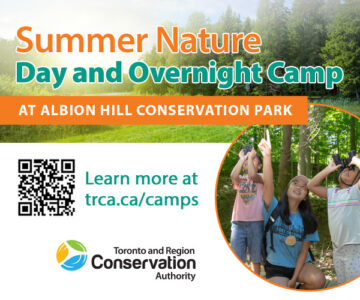In Praise of Holes
In nature, hole digging is replete with meaning, helping countless animals survive.
In the book Holes by Louis Sachar, subsequently adapted as a Disney movie and released in 2003, protagonist Stanley Yelnats and his fellow inmates at an internment camp are forced to dig a hole a day to “build character.”
Though the warden of the facility had an ulterior motive for the forced labour, to the hole diggers, the task appears meaningless.
In the animal world digging holes is far from meaningless. The excavators of those holes are ecosystem engineers – animals that play an outsized role in maintaining healthy habitats. Nature’s hole makers provide homes not only for themselves and their families but, ultimately, for many other creatures that can’t build their own homes.
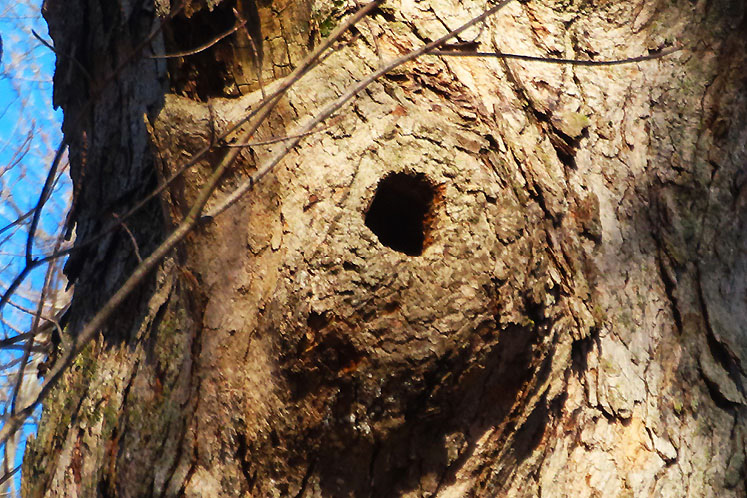
On a recent trip to Georgia, I watched gopher tortoises basking in the morning sunlight at the entrances to their burrows. These tunnels, excavated in sandy soil, can stretch five metres or more and extend downward two metres.
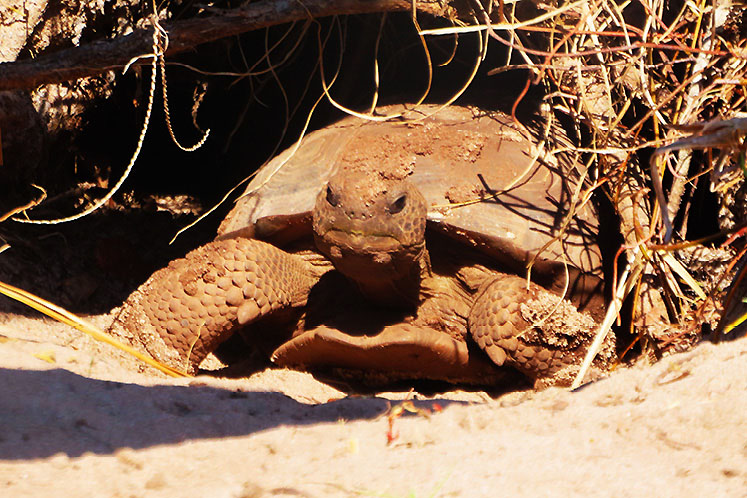
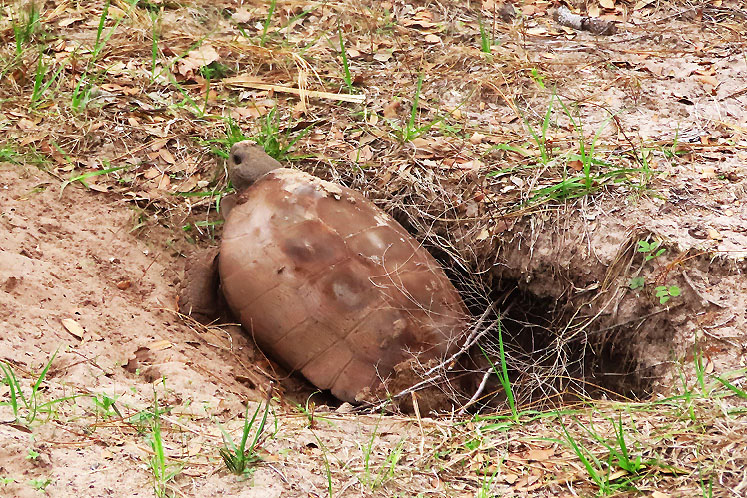
More than 400 species of animals use these burrows for shelter. The vertebrate tenants include indigo snakes, diamondback rattlesnakes, small mammals, frogs and lizards. If gopher tortoises were to disappear, the effect would be analogous to losing engineers and construction workers in our world.
In Headwaters, various birds and mammals make holes. Among birds, woodpeckers are the most important excavators, often transforming old dead and dying trees into bird condos.
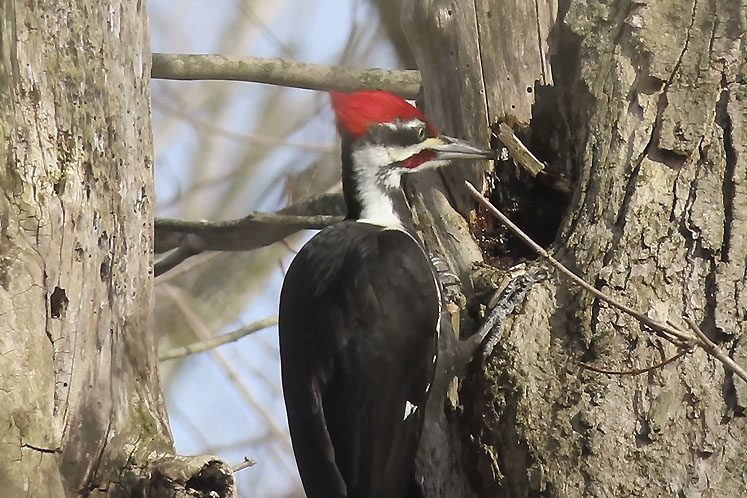
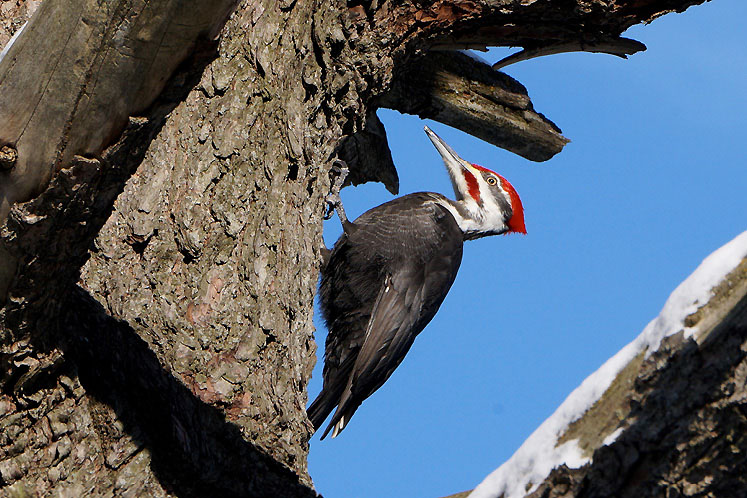
Our large pileated woodpeckers wield powerful beaks to chisel out spacious nesting cavities that in subsequent years can be occupied by screech owls, flying squirrels and many other arboreal animals.
Smaller woodpeckers, such as the downy, hairy and red-bellied, excavate smaller nest holes. When eventually abandoned by the woodpeckers, these cavities become choice nesting accommodation for songbirds such as tree swallows, bluebirds and great-crested flycatchers.
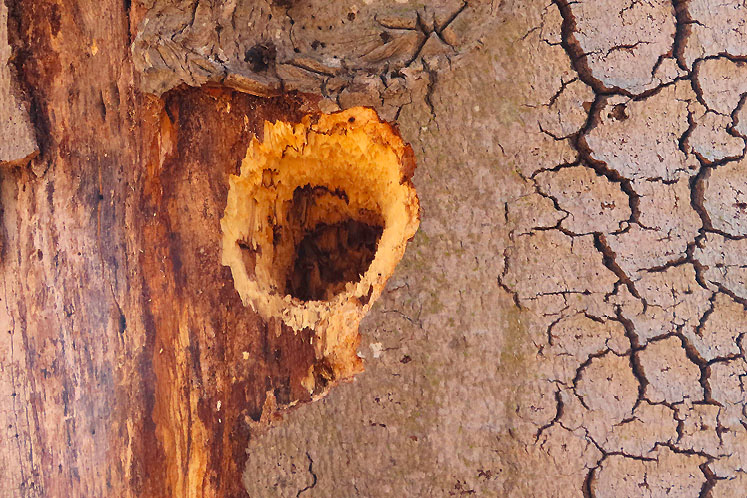
In places where people haven’t stepped in to provide bird houses, these species are almost completely dependent on the construction skills of woodpeckers.
In Holes, the digging appeared to serve little purpose. But in nature, hole digging is replete with meaning, helping countless animals survive.
Related Stories
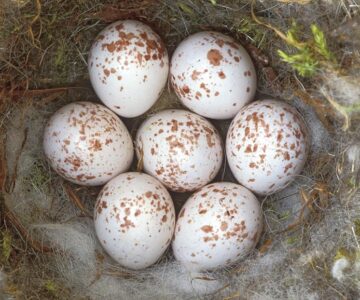
Home, Sweet Home
Mar 20, 2023 | | EnvironmentThe amazing architectural feats (and sometimes cheeky parenting techniques) of nesting birds
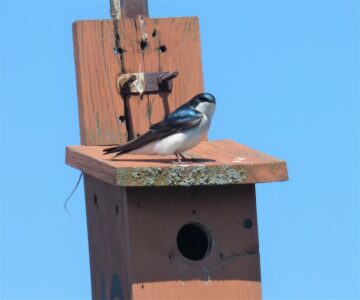
Nesting Instincts
Jan 6, 2023 | | Notes from the WildMost of us have the good fortune to raise our families in safe, comfortable houses. Birds want nothing less.

